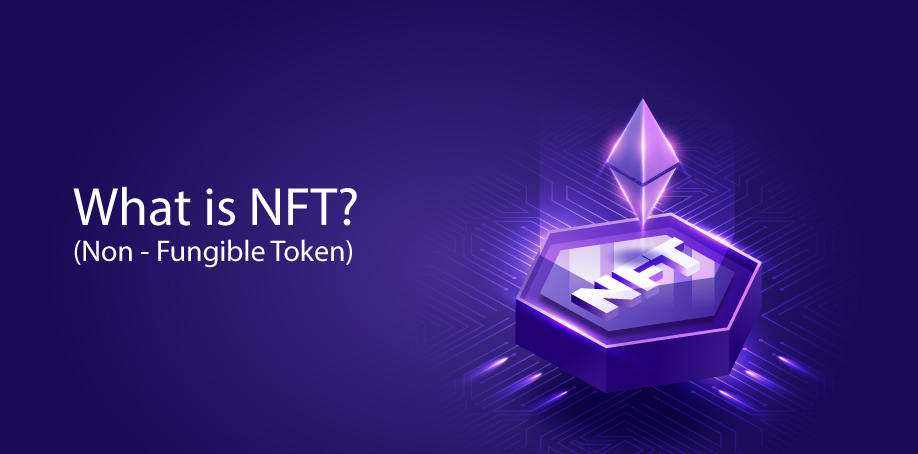
NFTs explained - Non-Fungible Token
A new kid on the crypto block, the NFT stands for Non-Fungible Token, is being rumoured to change the face of investing forever.
But what is this paradigm-shifting trend, and how is it causing so many changes in the world of finance you ask?
We have a short guide for you, explaining the nitty-gritty behind the exciting world of NFTs. Read ahead to find out!
What is NFT?
The first known NFT was minted in 2014 by Kevin McCoy, a Digital Artist. That NFT was called the "Quantum", which was a pixelated octagon filled with various shapes, pulsing together hypnotically. The Quantum was sold for over $1.4 million, in a Sotheby auction held in 2021. Non-Fungible Tokens are non-tangible, digital tokens that represent real-life goods, collectible items. Some examples of non-fungible tokens are digital art, online content, music, videos, in-game avatars, etc.
NFTs are bought and sold online using cryptocurrency and are usually encoded with the software that is used for cryptos. In other words, they are unique tokens that exist on the Blockchain, and cannot be duplicated.
The NFTs are beneficial in purchasing high-end goods or unique commodities that need provable ownership more efficiently and thus reducing chances of fraud by great percentages. They are also used to represent identities, property rights, and many other real-time physical assets. This is so because the use of the non-fungible token eliminates the role of intermediaries and directly connects the asset owners with the buyers. Moreover, it simplifies transactions, and opens doors to new markets for sellers, waiving off the limitation of selling goods physically.
Fungible vs. Non-Fungible
The dictionary meaning of the word 'Fungible' is to have the ability to be interchanged, bartered with other goods or assets of the same value or type. The fungibility of items makes transactions easy between two parties since the term implies equal value between two assets put for exchange.
Goods like oil, bonds, metal, and money are fungible since they have a fixed value or price, and can be replaced by other products.
The word 'Non-Fungible', the opposite of the word Fungible, is an economic term for unique goods that don't have a value that can be matched and thus cannot be exchanged for other commodities.
Products like diamonds, property, art, and artefacts are non-fungible since their value is determined by their qualities, and thus can raise or reduce the value erratically.
How are NFT prices determined?
The NFT marketplace is not restricted to regular, conventional assets that already have a determined value to them. NFTs normally extend to digital content and digital assets that don't come with value.
That said, the value of the NFT is proportional to the kind of commodity it represents on the NFT market, on the Blockchain.
If the token represents a tangible good, like a property that already has a real-time value attached to it, the real-life price is used to determine the value of the NFT on the Blockchain.
However, for intangible goods like digital content, NFT prices purely depend on the supply and demand of the commodity. Also, the seller has the freedom to set the price for their digital content as per their desire, banishing yet another limitation of physical markets - the MRP (maximum retail price).
The two factors - the seller's price and the buyers' budget are combined to decide the abstract value of the NFT.
NFT MARKETS
NFT can be bought, sold, and created via NFT marketplaces. These platforms can also be used to trade commodities.
NFT trading depends on the kind of asset you're looking for. There are several platforms- the NFT marketplace, some specializing in different NFT items, that you can choose from as per your needs.
NFT markets in the crypto market run with no restrictions, limitations, or middlemen. It throws light on the crypto market with the ultimate Blockchain support and perfect integration.
Here are the 2 most popular NFT marketplaces for you to buy, create, and trade NFTs from:
● OpenSea- OpenSea is an influential NFT market due to its glitch-free interface. It is a user-friendly space, based on the Ethereum Blockchain that allows listing of foreign NFTs (NFTs created on other platforms), along with enabling users to bring efficient assets into the minting process.
● Rarible- One of the oldest platforms for trading, minting, and creating NFTs, Rarible is reputed as an influential NFT marketplace. It links sellers to buyers to minting NFTs. It is considered the most authentic platform, due to its time of existence and because it exists on the Ethereum Blockchain which is highly convenient and reliable to the users.
Purchasing NFTs
Since NFTs are based on Blockchain, it makes them secure and ensures authenticity and uniqueness for a long period. The exclusiveness of the NFT extends even to cryptocurrencies. It is non-replaceable even by conventional cryptocurrencies like Bitcoin, Ethereum, Litecoin, and Dogecoin, because it's non-fungible. That said, you can use cryptocurrencies to pay for NFT
Conclusion
The Non-Fungible Token has shaken the world and made the NFT marketplaces boom with rapid trading. Users are attracting massive profits and enjoying benefits thus promoting NFTs as a new profitable investment scheme.
The future of NFTs demands a legal and regulatory authority to manage the marketplaces, and values, and centralize the entire process. The result of this step might have a dynamic change on the future of NFTs, it's predicted.
©️ 2024 Edify Educational Services Pvt. Ltd. All rights reserved. | The logos used are the trademarks of respective universities and institutions.
